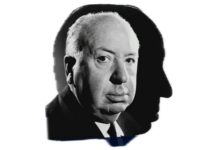Constipation is not exactly a dinner topic, but it is a condition that affects almost every living person at one time or another. It’s a common complaint at the doctor’s office.
Constipation is defined as infrequent bowel movements or difficult passage of stools. The normal number of bowel movements for adults ranges from one or more per day to two to three per week. For most people, going without a bowel movement for several days is a temporary condition and does not lead to any obvious discomfort or health problems. One may begin feeling uncomfortable when constipation lasts more than a few days. It should be noted that constipation does not build up toxins in the gut, nor does it lead to cancer.
There are many causes of constipation, some of the more common being:
– Inadequate amounts of fiber in your diet.
– Insufficient liquid intake.
– Lack of physical activity.
– Side effect of some medications, especially narcotic pain medications such as Vicoden and Percocet.
– Changes in daily routine or lifestyle.
– Colon cancer (rare).
There are two methods of dealing with constipation including:
Life style changes
– A high fiber diet including beans, whole grains, fresh fruits and vegetables, and less dairy, red meat and processed foods.
– Adequate fluid intake.
– Regular exercise.
– Trying not to delay a bowel movement when one has the urge.
Laxatives
– Fiber supplements are natural and very safe. Examples include Metamucil and FiberCon which are safe and effective to use daily.
– Stool softeners, such as Colace and Surfak, add moisture to the stool.
– Stimulants help increase intestinal motility. Examples include Dulcolax, Senekot, and Correctol. (It’s best not to use these too often.)
– Osmotics bring more fluid into the intestines causing easier passage of stool. One of the most common which I recommend is Miralax available without a prescription.
– Saline laxatives also help to draw fluid into the intestines. Examples include milk of magnesia and Haley’s M-O.
– Lubricants, such as a dose of mineral oil, help the intestines to pass the stool more easily.
I want to take this opportunity to talk about colon cleansing which is enema therapy that is claimed to help flush the toxins out of the colon. There is absolutely no scientific proof that there are toxins in the colon which can cause any harm. Most substances good or bad have been absorbed into the body in the small intestine which is not affected by enemas. In fact, colon cleansing can flush out needed electrolytes before they can be absorbed by the colon and also wash out beneficial intestinal bacteria. Don’t flush your money down the toilet on this misguided treatment.
From my experience, if you suffer from constipation and follow my advice in this article, you can save a trip to your doctor. But if symptoms persist or worsen, by all means get professional advice.
– Terry Hollenbeck, M.D., is an urgent-care physician at Palo Alto Medical Foundation Santa Cruz in Scotts Valley. Readers can view his previous columns on his website, valleydoctor.wordpress.com, or e-mail him at va**********@*******al.net. Information in this column is not intended to replace advice from your own health care professional. For any medical concern, consult your own doctor.











